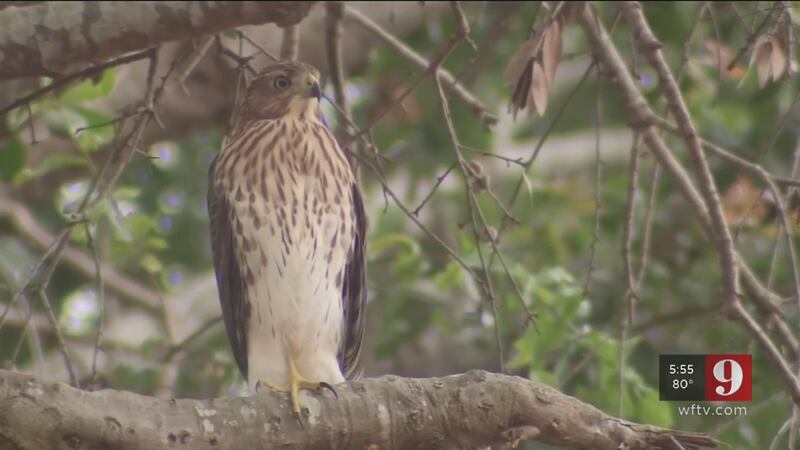ORANGE COUNTY, Fla. — An existing family of hawks nesting at the Orange Tree subdivision in Orlando is becoming more aggressive, according to neighbors who spoke to Eyewitness News.
“We have five aggressive hawks living in our oak tree in the front of the house, and they’ve kind of taken it over,” resident Leslie Hanft said. “They’re aggressive. They come down and they try to swoop my little dog who’s in the window barking right now.”
Hanft pointed out the hawks in various trees surrounding her home, telling Channel 9’s Field Sutton they’d attacked her husband on three separate occasions. She showed photos of the man’s scalp after one of the attacks, in which blood was drawn and claw marks were left on his forehead.
A neighbor across the street said he’d seen the birds in his trees recently, too. He said there were others up near the entrance to the subdivision.
Download the free WFTV News & Weather apps
“Something really needs to be done, because we have to live here too,” Hanft said.
Beth Lott with the Audubon Center for Birds of Prey in Maitland looked at video of the birds in question Wednesday, identifying them as Cooper’s Hawks, which she said were likely nesting now.
“They'll defend their nesting territory," Lott said, "which can go out a few feet from their nests. And by doing that, they sometimes will swoop down at dogs, cats and people, even.”
Lott said it’s unlikely a cat or small dog would be carried off by one of the birds.
“They only really eat other birds, so if it looks like it’s going after a dog, it’s mainly just trying to scare it away,” she said.
Residents in the neighborhood remain concerned, though.
“We’ve got a lot of kids in here, and there’s a lot up by the front gate,” Hanft said. “The school is up there. Kids ride their bikes, and when it is nesting time, who’s to say those kids won’t get attacked? They’re not wearing hard hats or wearing umbrellas.”
Lott said residents should wear hats or shield themselves with umbrellas when going near trees containing Cooper’s Hawks. She believes the birds’ nesting-related behavior could continue for another one to two months until any babies begin to mature.
Until then, there may be little residents can do. The Cooper's Hawk is federally protected by the Migratory Bird Treaty Act, which makes it illegal to attempt to move the birds or their nests without a permit.
An inquiry to the Florida Wildlife Commission regarding options for dealing with the issue was not immediately acknowledged Wednesday, likely due to holiday staffing conditions at the agency.
Cox Media Group







